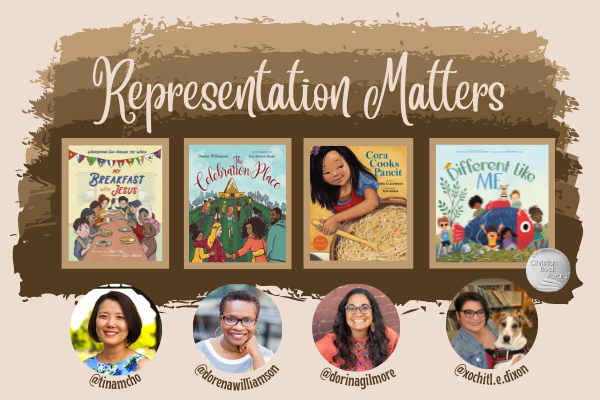
Suggested Reading: Mark 12:28-34 and Luke 10:25-37
When the pandemic started, someone asked if I thought God was testing the Church.
I smiled. “No,” I said. “I think He’s dispersing the Church.”
During our conversation I explained how God had equipped the Church to fulfill His mission. In the New Testament, the Greek word for Church (ekklesia) means “an assembly,” “to call out,” or “the called ones.”
“Church” was never intended to be defined as a meeting place or time.
The Church is a living organism made up of living organisms ̶ God’s image-bearers, believers in Jesus who are commanded to love God and love people.
Though I didn’t attend a service in-person during the pandemic, God provided plenty of opportunities to assemble with His people online.
He also presented me with opportunities to talk to people in person, as we honored the social distancing boundaries and wore masks as an expression of love toward our neighbors.
As the Lord called me out, I spoke to my neighbors, the people God loves who lived in my neighborhood, the people I’d only waved at in the past . . . sometimes as I rushed to worship Him with other believers at Sunday service.
I slowed down and saw my neighbors as I walked to the park, shopped at the grocery store, smiled with my eyes, and sent air-hugs as we stood six-feet-apart.
I saw my neighbors as they walked or drove by our home.
Seeing my neighbors led to praying for my neighbors, as God taught me to truly love my neighbors as He loved them and me . . . selflessly and sacrificially.
How had I lost sight of my mission as a disciple of Christ who desired to be obedient to His calling?
I found answers by reflecting on the responses of two men, one in Mark 12:28-34 and the other in Luke 10:25-37.
In Mark 10, a teacher of the law approached Jesus and asked which commandment was the “most important” (v. 28).
Without missing a beat, Jesus said:
“‘Love the Lord your God with all your heart and with all your soul and with all your mind and with all your strength,’ The second is this: ‘Love your neighbor as yourself.’ There is no commandment greater than these” (vv. 30-31).
This man answered wisely, knowing Jesus had simply affirmed what was written in the Scriptures (what we now know as the Old Testament). The Bible doesn’t tell us what that man did after his conversation with Jesus. I like to think that he went out and fulfilled his calling, to love God and people.
In Luke 10, another man approached Jesus. This expert in the law wanted to “test Jesus” (v. 25).
When he asked what he needed to do to inherit “eternal life” (v. 25), Jesus asked him to interpret the law (v. 26).
Correctly, the man repeated what we have come to know as the Greatest Commandment (v. 27).
Jesus called the man to fulfill his mission: “Do this and you will live” (v. 28).
Sadly, this expert of the law seemed to be looking for a loophole in Jesus’ command. I sense a hint of sarcasm when I read the man’s response in verse 29: “And who is my neighbor?”
Jesus gives the man a clear image of how to love God and people when He shares the Parable of the Good Samaritan (vv. 30-35). He then asks the expert in the law to identify which person in the parable reflected the heart of a neighbor toward the injured Samaritan (v. 36).
“The expert in the law replied, ‘The one who had mercy on him’” (v. 37).
“Jesus told him, ‘Go and do likewise’” (v. 37).
Like this man, we are called out of our comfort zones to go and do likewise. We are called out of our self-centered pits of despair and discontent. We are called out of everything that hinders us from loving God by loving our neighbors selflessly and sacrificially.
God calls us to Him, to be transformed by His unconditional love.
He calls us to love our neighbors by turning away from everything that distracts us from seeing our neighbors, especially those who are different from us, less privileged than us, or carefully shoved out of our field of vision so we can forget about the things that make us feel uncomfortable or don’t personally affect us.
When everyone goes back to Sunday services, I pray we enjoy the fellowship as we grow closer to God and each other.
However, I also pray we remember that the buildings are not “the Church” and the times we assemble together for weekly services are not the main objectives of our mission.
Times of assembling with believers are meant to equip and encourage the Body of Christ to become more spiritually-matured disciples who are ready to be dispersed, so we can fulfill the Greatest Commandment and the Great Commission . . . wherever God leads us in person and online.
*
Loving God, thank You for empowering us with Your Holy Spirit who enables us to know You and love You.
Please help us see all of our neighbors, especially those who are different from us and those we are more comfortable ignoring.
Empower us to love our neighbors the way You love them, selflessly and sacrificially, unconditionally and compassionately, intentionally and genuinely.
Show us how to love with our words, our actions, and our attitudes in person and online.
Please remind us that You never asked us to change our neighbors, to make them more like us, or to expect them to fit into our vision of acceptable.
Make us more like You, Jesus, so we can reflect Your character as we reach out to others and point them to You so that You can transform them through the power of Your Holy Spirit, as You are transforming us.
In Jesus’ name, Amen.
*

As I ask God to help me see my neighbors so I can love my neighbors, I’m excited to be a part of a group of authors who celebrate God’s intentional diversity and inclusivity.
Throughout the month of August, I’m working with Dorina Gilmore-Young, Tina M. Cho, and Dorena Williamson to help others see their misrepresented and under-represented neighbors in the pages of children’s books.
This week, I would like to introduce you to Dorina Gilmore-Young, the author of Cora Cooks Pancit.
When asked about the lack of representation of BIPOC characters in Children’s literature, Dorina writes:
“We have tasted progress, but we have not yet arrived. Representation still matters. As an author, an educator, and a mother of three brave girls, I want to be part of carrying the torch.”
Dorina’s family has teamed up with Dr. Lucretia Berry, founder of Brownicity, to present a membership program called Global Glory Chasers. Each month they highlight a specific country and introduce a list of books, movies, music, and recipes to help families learn about different cultures.
To read Dorina’s article in the Representation Matters Series, “Mosaic Voices: Why Representation Matters in Children’s Literature and Beyond,” click here.
To learn more about Global Glory Chasers, click here.
To follow Dorina on Instagram, please click here.
We have a special announcement to share at the end of August, so I hope you’ll stay connected.
I look forward to growing with you as we seek to love God and our neighbors together!
*

*
Congratulations to the recipients of the Anniversary Giveaway!
Michelle Vegara, you will be receiving a signed copy of Waiting for God: Trusting Daily in God’s Plan and Pace.
Karen Condit, you will be receiving a signed copy of Different Like Me.
I will email the winners to request mailing information.
Thanks to all of you who took time to read and respond.
Stay tuned! We’ll have another special giveaway SOON!
*
If you are reading this message via email, please DO NOT REPLY to this email. Instead, CLICK HERE to leave a comment under the original article on my blog. You will have to scroll down to the end of the article to join the conversation.
Thanks for being a part of my blog family!
*
*

Thank you for your clarity and scripture based insight on the church! We need to hear our calling has not changed even though the world circumstances have!
Amen! Thanks for your encouragement, Lin. To God be the glory! I’m grateful we’re on this journey together!